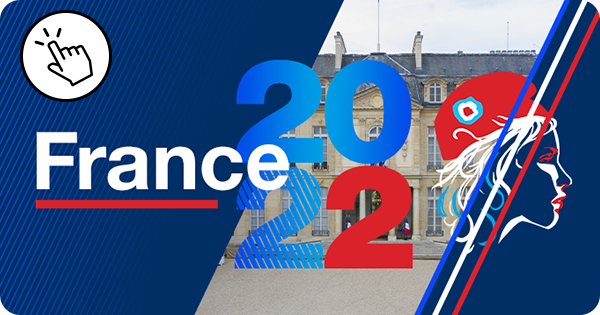Muslim headscarves took centre stage in France’s presidential campaign on Friday as both finalists in a tightly contested April 24 run-off were confronted by women in headscarves who asked why their clothing choices should be caught up in politics.
France is home to western Europe's largest Muslim population and many Muslims feel the presidential campaign has unfairly stigmatized their faith.
Far-right candidate Marine Le Pen, who trails the incumbent in the polls, has said she will ban headscarves in public and fine women who flout the ban.
President Emmanuel Macron has no such plans, but his government has ordered the closure of several mosques and Islamic groups it accused of fostering radical Islamist opinions.
Neither candidate fared well among Muslim voters in the first round on April 10, with around 70% backing third-placed Jean-Luc Mélenchon instead, according to pollsters.

At a farmers’ market in the southern town of Pertuis on Friday, a woman in a blue-and-white head covering approached Le Pen as the candidate weaved past fishmongers and vendors to greet supporters.
“What is the headscarf doing in politics?” the woman asked.
Le Pen defended her position, calling the headscarf a “uniform imposed over time by people who have a radical vision of Islam.”
“That’s not true,” countered the woman. “I started to wear the veil when I was an older woman (...). For me it is a sign of being a grandmother.”
The woman noted that her father had served in the French military for 15 years.
>> Read more: ‘Islam is being hyper-politicised in France, but Muslims are not part of the debate’
Le Pen’s opposition to the headscarf has encapsulated what her critics say makes her dangerous to French unity, by stigmatizing millions of French Muslims. Le Pen would also slash immigration and wants to outlaw ritual slaughter, which would restrict French Muslims’ and Jews’ access to kosher and halal meat.
Choice or obligation
Macron too debated a woman in a Muslim headscarf on Friday in a lively exchange on broadcaster Franceinfo. He sought to distance himself from Le Pen by saying he would not change any laws, but defended an existing ban on headscarves in schools as part of France’s secular principles.
The woman, Sara El Attar, said she had felt insulted by previous comments by Macron where he’d suggested that headscarves destabilise relations between men and women.
French women “have been castigated these recent years for a simple scarf, without any leader deigning to denounce this injustice”, she said. And she repeated the argument that many veiled women in France make: That people mistakenly think they’re veiled not through personal choice, but because men make them wear headscarves.
Macron sought to defend his record. “For me personally, the question of the headscarf is not an obsession,” Macron said.
>> Equality and the French presidential election: What's at stake for women?
But critics say his government stoked prejudice against Muslims by cracking down on what it has claimed are efforts by some Muslims to carve out spaces in France for stricter interpretations of Islam. The government has gone after some schools, mosques and Islamic associations.
Earlier this week, Macron was challenged by a woman wearing a headscarf in Strasbourg, who asked him whether he considered himself a feminist.
“Do you wear the veil because you want to or because you're obliged to?” Macron asked the young woman, who said it was her choice.
“That is important,” the president answered. “Because having a veiled woman ask me whether I'm a feminist is the best possible answer to all the nonsense we hear coming from Ms Le Pen.”







